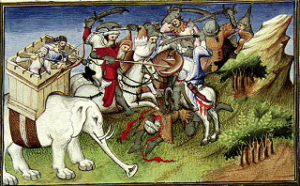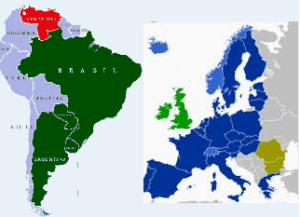
Arquivo para 2020
The desert and the future
It is not just the pandemic, in fact it can pass, but its problems have not only passed but are getting worse, the future ahead may be a serious crisis, not only due to economic and social difficulties, at the root there is a crisis of the thought.
not only passed but are getting worse, the future ahead may be a serious crisis, not only due to economic and social difficulties, at the root there is a crisis of the thought.
The number of emotional and psychological problems of a long period of isolation is already visible, and the following cycles of euphoria and exaggeration may be worse, part of the second wave in Brazil reveal the data are parties and inexplicable agglomerations in the middle of a pandemic .
Augusto Cury’s novel talking about the Future of Humanity, seems to point only to the focus of people with psychic problems can be solved and that the relationship with these patients who are marginalized and treated as without identity, indignant a young student named Marco Polo, the adventurous Venetian navigator of the 13th century, whose name his father gave in his honor.
The challenge for this young man is that in addition to medication, treatment with dialogue and psychology can lead to a real revolution in the treatment of people like that.
The world has already changed, the new normality can present serious problems of both social and psychological origin, but the awareness that all this can and should be treated with dialogue and without escape mechanisms, such as drinks, drugs and parties, can help a another cure besides the pandemic, of course this is not the subject of the book.
The book The travels of Marco Polo certainly inspired the navigations and explorations of the East in the passage from the Renaissance to Modernity, written between 1271 and 1295, tells the experiences of this young man in the court of Kublai Khan, however the journey is made of struggles and challenges (see illustration of the original work above) and the voyages of great navigators came in the following years, there is a crossing to be made today.
I also remember the phrase by Augusto Cury in which he says that only those who can cross the desert are worthy of the oasis.
The pandemic is a warning about education
The pandemic could have helped our human understanding,  about our limitations, about our interdependence and above all about the uncertainties we have lived since our birth, life as well as goodness and goodness are fragile and need to be taken care of.
about our limitations, about our interdependence and above all about the uncertainties we have lived since our birth, life as well as goodness and goodness are fragile and need to be taken care of.
Throughout his 99 years, the thinker Edgar Morin lived what many of us read only in books, the experience of this remarkable educator is that there is an evil that all provided in different degrees, human understanding, humanism that encompasses every man and change your life.
The fundamental philosopher’s concern in times of pandemic is political and religious polarization, which, in convergence with Jonathan Haidt’s thinking, leads to the idea that empathy and collective consciousness are essential to avoid or minimize this dangerous polarization.
The thought developed by Haidt around the pandemic is the fact that “we are stuck together here”, takes the idea of everyone in the same boat, also the name of a book by Peter Sloterdijk, it is from there that he starts trying to lead to a new horizon of well-done and civilized dialogue, patient listening and acceptance of different views, in fact always happened, but the issue is moral differences.
It is not an easy task, says Morin, the ways in which our moral psychology has evolved, precisely for education, it is necessary to teach human understanding in schools and understanding, because it is an evil that we all suffer to a certain degree.
In addition to this, the philosopher, who is almost a hundred years old, must be taught that the only certainty in every human destiny is that life is made up of uncertainties, last week we posted Heidegger’s being-to-death poorly understood and that in this time of pandemic it can lead the human being just to the opposite to which we are heading, the discovery of the infinite, of respect for the other and of morals, as Morin wants.
A cold analysis makes us pessimistic, because the dangers are so many, even with the vaccine, with it there may come an even bigger problem, which is ignoring the problems we have beyond the pandemic, but Morin’s insistence on educational and moral issues points a way good
Routes and paths
While the West suffers from covid-19, the east in the midst of the crisis continues to show signs of vitality and strength, formed a bloc of 15 countries with China, South Korea, New Zealand, Japan and Australia ahead, called RCEP (Regional Comprehensive Economic Partnership) was signed at a regional summit in Hanoi on 11/15, although the conference was online.
crisis continues to show signs of vitality and strength, formed a bloc of 15 countries with China, South Korea, New Zealand, Japan and Australia ahead, called RCEP (Regional Comprehensive Economic Partnership) was signed at a regional summit in Hanoi on 11/15, although the conference was online.
One of the objectives is to progressively reduce tasks in key areas in the coming years, in addition to the countries that were part of the Asian ASEAN treaty, Brunei, Cambodia, Indonesia, Laos, Malaysia, Myanmar, Philippines, Singapore, Thailand, Vietnam, bloc has half the world population and almost 40% of the GDP of the entire planet.
In addition to the pandemic, the West is struggling with polarizations, crises with minority and racial rights, a degrading moral environment, in which corruption is only part of the whole structural gear around it, with an increasing presence of migrants from the whole planet, but especially the Arabs, who have a very different culture.
The Eurozone will have to strengthen ties to get out of the economic crisis imposed by the pandemic, the departure from England that ends in December, still has unpredictable effects also for England, but the conservative government has managed to impose itself in the midst of the pandemic and prepares the first mass vaccination in the west.
In Latin America, the step taken by Bolsonaro from Brazil and Fernandez from Argentina to hold the first bilateral meeting is still encouraging, but the call for cooperation from the Brazilian government’s armed forces and the request for collaboration on the environmental issue despite of the diplomatic touch also represent a provocation in what the presidents believe.
The elected government of Bolivia, supporter of the deposed Evo Morales, tries to break the isolation by inviting the opposition leader of Venezuela, but used the Bolivian flag and Whipala, symbol of the indigenous peoples’ congregation, in the liberation party of the state of Potosi.
The call for cooperation and the formation of a cohesive Mercosur bloc is difficult to leave the paper for concrete measures where cooperation, respect for political and cultural diversity, and cooperation across borders is a step taken as in the East or in the still fragile European Union, agreements of the Americas, as was the proposal of NAFTA, if they go forward with Joe Biden they must be a very slow process
Vaccines under test and an economic dispute
Even recognizing flaws in the theses, Pfizer’s vaccines against  covid-19 should be approved within a few days, the Financial Times reported on Sunday, so the United Kingdom becomes the first country in the west to have a vaccine, and vaccination can begin. on December 7, in Brazil, the race is for Coronavac, no matter which one is safer, behind the vaccines there are economic deals and investments made in the manner of betting and not really scientific criteria.
covid-19 should be approved within a few days, the Financial Times reported on Sunday, so the United Kingdom becomes the first country in the west to have a vaccine, and vaccination can begin. on December 7, in Brazil, the race is for Coronavac, no matter which one is safer, behind the vaccines there are economic deals and investments made in the manner of betting and not really scientific criteria.
In Brazil the authorization is made by Anvisa, in Europe by the European Medicines Agency and the departure of the United Kingdom from the European Union, a final Brexit transition is for December 31, but the Regulatory Agency for Medicines and Health Products in the United Kingdom has the power to temporarily authorize the products, and there is an obvious interest in the UK even though it is in partnership with German BioNTech.
The process could be applied to the vaccine developed by AstraZeneca and the University of Oxford (Brazil participates in FioCruz), on Sunday, Friday (27) the government asked the regulator to review the AstraZeneca-Oxford vaccine, thus showing the real interest .
Current data on the efficiency of Coronavac, a medical vaccine by the Chinese company Sinovac and which has a partnership with the Butantan Institute, should be announced in early December, and an approval in record time would be for January, however the effectiveness is different from the tests that verify side effects, contraindications and long-term efficiency, also a Pfizer was questioned recently due to the tests.
The long-term effects studies indicated that perhaps a single vaccine would not solve the pandemic problem, an article was published in October in The Lancet Infectious Diseases, which lit up a warning sign about vaccines, and said that he did not know until that time. data if vaccines were candidates were effective in severe forms of the disease, the warning sign remains on.
Eschatology and Christmas
As an ontological synthesis of the eschatology that we developed this week, we return to Heidegger in his three eschatological concepts.
week, we return to Heidegger in his three eschatological concepts.
Be careful, Heidegger appropriates the Greek fable in which Jupiter and Care that is shaping clay fight over the name that will be given to the created figure, and called Saturn as a judge he says that Jupiter will belong to the spirit because he was the one who gave it the form , while Care will have the land, since it formed it, and Care will belong to the shape of the clay he created, so to care in the present moment.
Impersonality is one in which it breaks the relationship with the world, and makes the individual isolated, “out of relations of familiarity with the world” and thus almost always in the absence of the other. it breaks this relationship, and makes the isolated individual “fall out of familiarity with the world,” says Heidegger.
Silence is the final aspect of this eschatology, it is invoked when the individual has already discovered himself, and returns to the world now master of himself, so is the return of peace and the harmonious relationship with the world, even if he is in conflict, or in one of his deaths.
Christmas is not only celebrated by many Christians of different sects, although curiously it awaits the new coming, which is the parousia and it is also celebrated in the first weeks of Christmas, the time of advent, but this is the separation we speak of Being of life and being-for-death.
They are not disconnected, it is in it that death, the resurrection of life and the new coming, or a new time, or what happens after a small or great tragedy develops, I think it is true that we live in a time like this, but eschatology who intends to deny death is death itself.
The urgent need for changes in the human life of the planet, in respect for the planet itself, for the Other that is not our mirror, is not “our class”, it is more and more a demand for change, for the death of an old system and to be reborn in a new civilizing perspective.
And if that time comes, that eschatological end, which is the biblical recommendation for those who believe, is the one that is in Mark (Mark 13: 33-34): “33“ Watch out! Pay attention, because you do not know when the time will come. 34It is like a man who, when he left abroad, left his home under the responsibility of his employees, distributing his task to each one. And he told the porter to keep watch “, whether or not this time comes “watch”.
While for the Christian it must mean an eternal parousia, that is, waiting for a new coming, for non-Christians it must be aware of a new time, a resumption of social, ecological and human values that are abandoned, in crisis or almost succumbed in a civilization in crisis.
A Christmas without big parties and consumerism should be a Christmas closer to its meaning, the Christmas of Care, Impersonality (respect for the Other) and Silence, is an almost perfect eschatology, as it would be if we could actually feel the return of a true time of salvation.
The eschatological infinity
Transcendence as an idea of the Infinite can be understood in Lévinas’ philosophy as “The presence of a being that does not enter the sphere of the Same, a presence that exceeds it, fixes its’ status” of infinity, this is how the idea will appear in Lévinas of Foreigner and there he in his own eschatology.
Lévinas’ philosophy as “The presence of a being that does not enter the sphere of the Same, a presence that exceeds it, fixes its’ status” of infinity, this is how the idea will appear in Lévinas of Foreigner and there he in his own eschatology.
The term Foreigner is typical of the biblical tradition from which Emmanuel Lévinas feeds, as many feed on Greek mythology, it is present in the fourfold prophet Isaiah, a prophet as in the mode of the celebrated Greek poets Homer and Hesiod, is curious because it can if Lévinas’s part sees a convergence between Hellenic and Semitic culture, contrary to all fury against Judeo-Christian culture.
The quadratics are as follows: the poor (who have no economic resources), the widow (who has no husband to support her), the orphan (who has no shelter to collect him), the foreigner (who has no country to step on) . they are the synthesis of what we now call and excluded in biblical times, and we can see in a new “philosophical” eschatology by Lévinas the idea of an eschatological “end” not as the end of time, but the end of poverty, of female helplessness (today more serious is femicide), the organs of wars and foreigners who walk around the world and which Bauman comes to irony (amazement) and then a new apocalypse.
It is thus that the infinite and the being-for-death can also have an eschatological interpretation, without any prejudice or presumption to the religious sense that may at some point occur, and from which the planet is not exempt, after all an eschatological end present in many non-Christian religions is what the earth itself (the mother-earth) rebels against, again a convergence with biblical prophecies.
The big reason why this idea was almost abolished in modernity, Leibniz already claimed it, is said by Lévinas: “My life and history do not form totality. The common that allows us to speak of objectified society, and by which man resembles the thing and individualizes himself as a thing, is not first ”(in Ethics and Infinite), and Lévinas will define this process as“ infinity ”(perhaps a better translation would be infinitation, but they did not translate this way), an inversion of modern subjectivity, because the subject is subjecting himself to Other, and thus lives his personal “in process” eschatology, subject to the Infinite.
On the social scale it is the foreigner, the poor and the one who suffers some kind of prejudice (the racist, for example, but there are others including the religious) and with this we are heading towards an authentic eschatological end, an apocalypse of the current world without brake and without a safe direction for all humanity.
Infinity as an eschatological complement
Every eschatology has a beginning and an end, it is a mistake to imagine it only with what will happen at the end of time, the Christian apocalypse or al-dain of the Islamists, which is not in the Koran, but in the sayings attributed to the Prophet Muhammad,it must be thought of in the process.
imagine it only with what will happen at the end of time, the Christian apocalypse or al-dain of the Islamists, which is not in the Koran, but in the sayings attributed to the Prophet Muhammad,it must be thought of in the process.
In philosophy, the idea of the infinite permeates the eschatology that I call complete because it admits an end like that which Lévinas wrote in Totality and Infinite as the metaphysical desire to tend towards something totally different, the absolutely other, note that it is not God, because it is not theology, but the change that is possible to another metaphysical state, after all the subtitle of the book is “Essai sur l´extériorité”, and exteriority has something essential there.
For Lévinas the idea of the infinite is one that refers to the different and the distinct, says Enrique Dussel that Lévinas when saying different and distinct, affirms that the different occurs in the Totality and the distinct occurs in the Proximity, outside of this we remain in pure idealism of the transcendence of the Subject to the Object.
In the words of Lévinas: “Metaphysical desire tends towards something totally different, towards something else … On the basis of the commonly interpreted desire, there would be the need (bésoin): the desire would mark an indigent and incomplete or fallen being. its past greatness. It would coincide with the consciousness of what was lost”, Its eschatological end is this then, the fallen being of its past greatness and with awareness of what was lost.
This is also where his ethics lies, after all for Lévinas it is called metaphysics because it refers to the transcendence of others, which is not merely physical and the indicative of this transcendence is the idea of the infinite, that which occurs in the face to face, which is therefore the distinct found in Proximity.
It is this proximity to the “face to face” that is primordial in Lévinas, it is the original experience of the inter-human, here I relate it with the cultural origin where there is the identity of the inter-human, that is, of a human a posteriori in function from an a priori, it is in this sense that I consider original cultures.
The original experience is that of someone’s ethical closeness, of a relationship without a mask, and thus anthropology and ontology meet, in Lévinas’s words (I know that the point of view is different) “morality is not a branch of philosophy, but the first philosophy ”, that would be a balanced civilization.
The relation with the being-to-death that I see with this infinite, is that one does not think from the finite, just like death not through the negation of life, this was for Kant for whom the notion of infinity is opposed as an ideal of reason, Hegel modified but placed the positivity of the infinite, excluding diversity.
The infinite is diverse because it starts from the Other, from the other thing, and also the totally other, so its eschatology is complete, the being-for-death and the infinite merge (of course neither Heidegger nor Lévinas say it) because they are in the beyond self and in the beyond life containing it entirely.
Eschatology and being-to-death
Where we came from and where we are going, each culture has its own eschatology, modernity and especially idealism is characterized by disregarding the idea of the infinite, of mystery and consequently of death, seen as fatality or simple finitude of life.
own eschatology, modernity and especially idealism is characterized by disregarding the idea of the infinite, of mystery and consequently of death, seen as fatality or simple finitude of life.
From the philosophy of Lévinas (Totality and Infinite) to the poetry of Goethe (Faust), from the novel by Tolstoy (The death of Ivan Ilitch) to the ontology of Heidegger (Being and Time) death is more than a concept or a theme, it is the own questioning of being, in Lévinas the infinite is proper to the transcendent being as transcendent, the infinite is the absolutely other, so one cannot think of the infinite, the transcendent, the Foreigner (in Lévinas) as being an object, but as an Other that does not it is something other than Being.
Idealism, in wanting to always live above the real, wants to ignore or “transcend” death (in the false sense of an object) and for this reason is quibble about it, but in the face of the tragedies of a pandemic, of a crisis that can become civilizing, he is immobilized or part of psychology, in this field there is also an adequate phenomenological treatment, after all Franz Brentano father of social psychology reopened phenomenology in modern times, the psychiatrist Kübler-Ross (About death and dying, Martins Fontes, 2002) studied that stage of the disease in which the patient asks “Why me” and deepened the theme.
The analysis in Heidegger, in order not to be superficial, must address three related themes: Care, Impersonality and silence, otherwise it is the analysis that we call epistemology or incomplete eschatology, since they face only pessimism in the face of death, nor the good psychology sees it that way.
Before a clarification, the term ontological refers to questioning the fact of existing, Dasein (being-there) is not only, but has a perception that it is, for phenomenology, it is not thought of itself first and then in the world, because the two things are inseparable, and so is an ontological epistemology.
To help what this being-there is, we need to deepen what Heidegger calls overcoming the factual world, and as for the super the world of impersonality, he manages to free himself from a structured reason endowed with meaning, in a way already given the to exist and to be.
Safranski, an authorized biographer of Heidegger, interprets it this way: “Anguish does not tolerate another god besides itself, and isolates in two ways. It breaks the relationship with the other, and makes the isolated individual fall out of relations of familiarity with the world ”, she is felt by the“ fall ”, by the dark horizon.
Thus, in impersonality, the idea of “everyone dies” is abandoned, which in life evades being-for-death, for its thinking about its solitary death, falls into that anguish described in Ivan Ilitch de Tolstoi.
Regarding Care, Heidegger appropriates the Greek fable in which Jupiter and Care that is shaping clay fight over the name that will be given to the created figure, and called Saturn as a judge he says that Jupiter will belong to the spirit because it was he who gave it the form, while Care will have the land, since it formed it, the German philosopher will use this sense, very ingenious, to say the being-for-death to find something beyond the finitude of the form.
Finally, the aspect of silence nad loneliness are invoked to discover the self, and then to return to the world already master of itself, and open to the relationship with others, which is no longer utilitarian ( so characteristic of idealists) or even by means of fixed guidelines (characteristic of incomplete eschatologies), there is thus a Being beyond the finite and open to the infinite, there is no pessimism, which says it is bad reading
Native culture networks and post-colonialism
Archaeological and paleontological research indicates that Africa is the probable continent that gave rise to the human species, fossils of hominids found in Africa (for example, in Tanzania and Kenya) indicate that the primitive species inhabited that region about five million years ago .
is the probable continent that gave rise to the human species, fossils of hominids found in Africa (for example, in Tanzania and Kenya) indicate that the primitive species inhabited that region about five million years ago .
However. in historical literature, when speaking of originating cultures, there is talk mainly of ancient cultures such as the Maya in Mexico, the Incas in the Andean region, the indigenous people mainly from the Brazilian Amazon region, in Colombia the population is almost two million inhabitants, 4 , 4% that has the Indigenous Organization of Colombia (ONIC), which are organizing according to covid-19.
In the Amazon, the Sahu-Apé indigenous community is only 80 km from Manaus, and organizational data (such as Terra Viva) show that 65% of the indigenous population is in poverty and 30% in extreme poverty.
In Peru, a large number of indigenous cultures are returning to the mountains due to food scarcity and fear of covid-19, often only with the clothes of the body, in Chile and Bolivia the influence of indigenous culture is very strong to dominate the colonial.
Thus, these peoples form communication networks for the preservation of their culture and the self-defense of their cultural values, and it is necessary to think about sustainable development, not massacres, as savage colonialism did, not only with violence, but also with their cultural values.
Modern electronic networks, which are social media, do not eliminate or overlap existing cultural networks, it is necessary not to ignore them and respect their values and culture.
The question of Being also involves the sociability and networking of native cultures, a good part of contemporary culture in crisis ignores or quibbles about the ontological values that are at the root of many works around native cultures, it is necessary to think post- colonial that does not see the civilizing process only from the Eurocentric and colonial point of view.
See my interview in USP Radio, University of São Paulo, at 10 h (in New York) at link: www.radio.usp.br/?page_id=5404 .
An incomplete epistemology and eschatology
What phenomenology and ontological philosophy seeks is at the center of the scientific crisis and of the thought that the West is experiencing, and whose epicenter is European, in Peter Sloterdijk’s enlightened saying that Europe is no longer the center as in the colonial period (empire of the Center) and looks for other forms of colonialism to take idealism forward, what in literature has been called epistemicide. In denying the cultures originating from other peoples, he thinks he is finding his own diffusion between barbarism and classical antiquity, he tries a new renaissance exploring the Greek culture in a diffuse way.
center of the scientific crisis and of the thought that the West is experiencing, and whose epicenter is European, in Peter Sloterdijk’s enlightened saying that Europe is no longer the center as in the colonial period (empire of the Center) and looks for other forms of colonialism to take idealism forward, what in literature has been called epistemicide. In denying the cultures originating from other peoples, he thinks he is finding his own diffusion between barbarism and classical antiquity, he tries a new renaissance exploring the Greek culture in a diffuse way.
At the religious level the disaster is greater, Slavov Zizek recently wrote about the religious concept in Hegel, and the latter of the thinkers who tried to revive classical Marxism, reworked the Hegelian religion, but which was already present in Feuerbach and Marx himself criticized, in the bottom is an atheistic theology, a dead eschatology.
Dead because this is in fact the great mistake of idealistic eschatology, there is no transcendence for it without the separation of subject and object, it needs to deny the substantiality to affirm its “subjectivity” where the subject must always be dead, it denies being-for-dead Heidegger’s motto, but affirms death in life (it isnt epoché).
Every form of original culture, it is obvious that it includes those non-Christian cultures, has an origin (the name says it), the eschatological life and end, which is not where it is going, and at this point this incomplete theology diverges on the that in fact is death, in times of a pandemic one could say the disease that can kill.
For this reason, even if the appeal to phenomenology will be incomplete, it will lead those who incorporate it to exhaustion, to contempt for life, which even in the religious sense is something deeply sacred, its “biós”, its substantiality, to be clear to idealists, its objectivity, fall into theoretical abstractionism.
The only substantiality of this incomplete eschatology is to deny religion in order to make it idealistic and to ask for what is inhuman, what in biblical terms he calls “putting heavy burdens on the shoulders of others” and which they themselves refuse to carry in times of pandemic neither enter nor let others in.
The final exam will be substantial: “I was hungry and you gave me food, I was thirsty and you gave me drink…” and you will not be asked whether you have developed a good epistemology or theology, the one that made colonialism the terror of original cultures.

